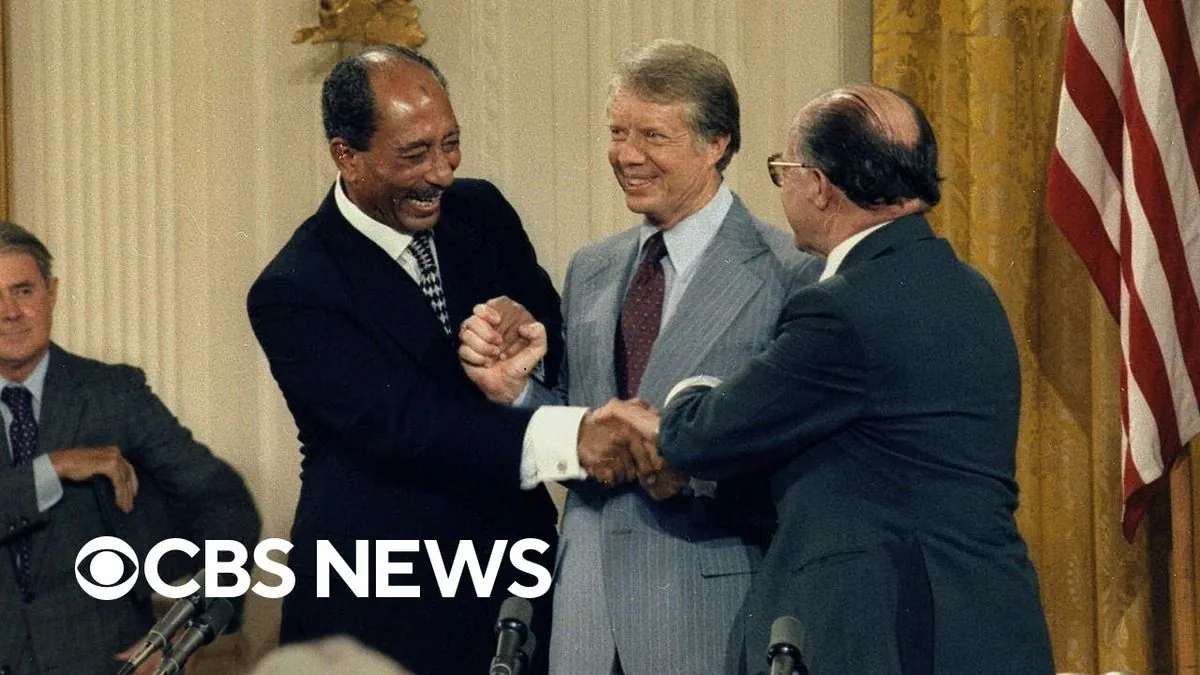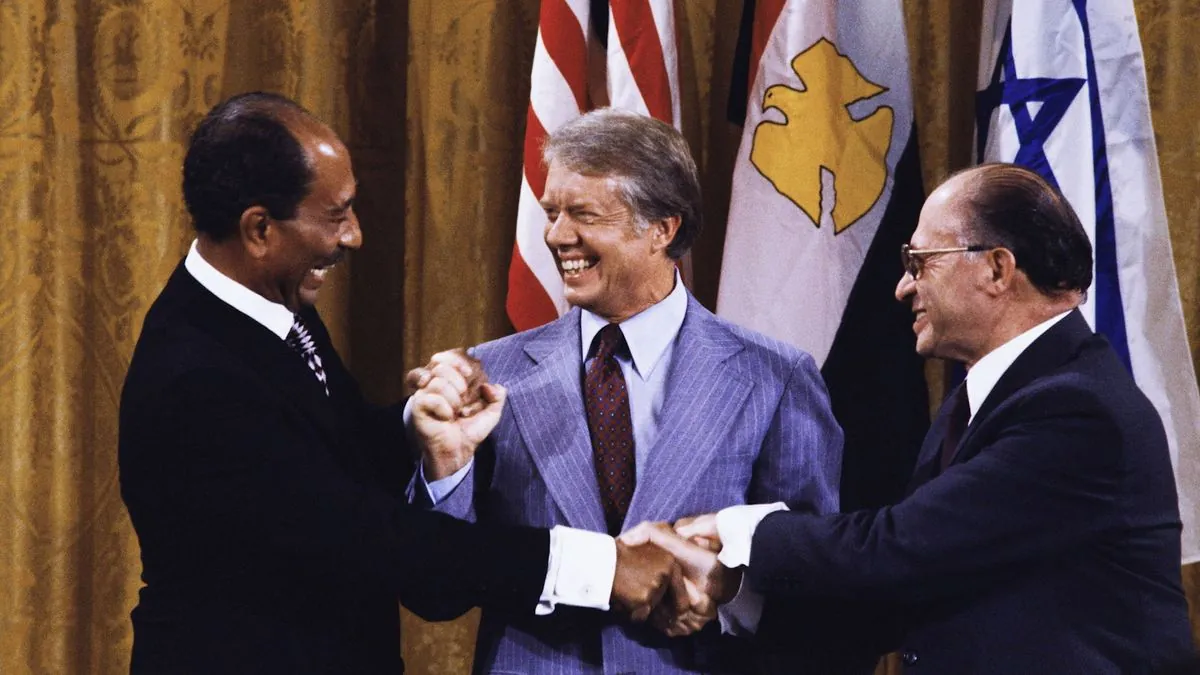Jimmy Carter at 100: Reassessing a Presidency and Its Enduring Legacy
As Jimmy Carter turns 100, a reevaluation of his presidency reveals significant foreign policy achievements and a commitment to human rights that outshine many of his successors' efforts.

On October 1, 2024, Jimmy Carter, the 39th president of the United States, marks a historic milestone as the first U.S. president to reach his centennial birthday. This occasion prompts a reassessment of his presidency, particularly his foreign policy achievements, which appear increasingly impressive when compared to those of his successors.
Carter's presidency, from 1977 to 1981, was often overshadowed by economic challenges and international crises. However, a closer examination reveals a leader who made significant strides in diplomacy and human rights. As a graduate of the U.S. Naval Academy and a former naval officer, Carter brought a unique perspective to national defense and foreign policy.
One of Carter's most notable accomplishments was his role in brokering peace between Egypt and Israel. His personal involvement in the negotiations led to the 1978 Camp David Accords and the subsequent Egyptian-Israeli peace treaty in 1979. This diplomatic triumph has had lasting implications for Middle East stability.

Carter's emphasis on human rights, initially criticized as naive, proved to be a powerful tool in enhancing America's global reputation. His support for dissidents in the Soviet bloc and promotion of the Helsinki Accords contributed to the eventual liberalization process within the Soviet Union.
In the realm of arms control, Carter negotiated the SALT II Treaty, which, although never ratified, was voluntarily adhered to by both superpowers for years. He also played a crucial role in discouraging nuclear proliferation in South America.
"Carter's policies played a significant role in the long and difficult process of liberalization inside the Soviet Union."
Contrary to the perception of weakness, Carter authorized the development of major weapons systems and established the Rapid Deployment Force to deter Soviet intervention in the Persian Gulf. He also provided covert aid to resistance movements in Afghanistan and Nicaragua.
Carter's post-presidency work has been equally impressive. Over the past 44 years, he has monitored elections worldwide, authored numerous books, worked to eradicate diseases, and mediated conflicts. His dedication to public service has earned him the title of "America's best ex-president."
It's worth noting some interesting facts about Carter: he was the first U.S. president born in a hospital, installed solar panels on the White House roof in 1979, and has won three Grammy Awards. He continues to hold the record as the longest-lived U.S. president.
In retrospect, Carter's presidency stands out for its principled approach to foreign policy and commitment to human rights. As we celebrate his centennial, it's clear that his legacy offers valuable lessons for current and future leaders in navigating complex global challenges.


































